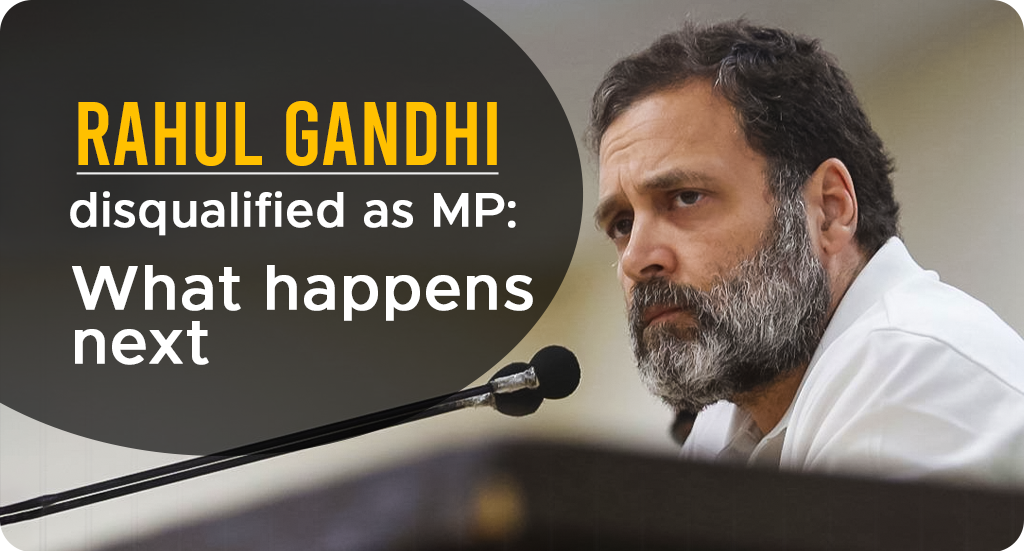Congress leader Rahul Gandhi has been disqualified as a member of Parliament after he was sentenced to two years in prison by a district court in a criminal defamation case. The Surat court has granted Rahul 30-day bail to allow an appeal in a higher court. A few legal experts opine the order invokes automatic disqualification as a member of Parliament under the law. However, others say the disqualification can be averted if a higher court overturns the sentence or reduces it to less than two years. A day after the disqualification, a Public Interest Litigation (PIL) was filed in the Supreme Court, challenging the automatic disqualification of elected representatives on conviction.
Why has Rahul Gandhi got a 2-year jail term?
The court convicted Rahul for his comments about Prime Minister Narendra Modi’s surname at an election rally in 2019. Ahead of the Lok Sabha elections, the Wayanad MP had allegedly said in a campaign speech in Karnataka: “how come all the thieves have Modi as the common surname”, naming Narendra Modi with Nirav Modi and Lalit Modi. Nirav Modi is a fugitive Indian diamantaire charged by the Indian government for criminal conspiracy, criminal breach of trust, and cheating in the 2018 PNB scam case. Lalit Modi is a fugitive Indian businessman and former chairperson of the IPL wanted in India for tax evasion, money laundering, and manipulating broadcast deals.
Surat BJP legislator Purnesh Modi complained to the court against Rahul Gandhi, alleging that his remarks “defamed” the Modi community.
What happens next
Section 8(3) of the Representation of the People Act, 1951 states that “a person convicted of any offence and sentenced to imprisonment for not less than two years shall be disqualified from the date of such conviction and shall continue to be disqualified for a further period of six years since his release.”
The Lok Sabha secretariat has disqualified Rahul, declaring his constituency vacant. The Election Commission can now call for a special election for the seat. Rahul Gandhi will not be allowed to contest elections for the next eight years if the district court ruling is not overturned by a higher court.
Rahul Gandhi can now appeal in court against his sentence and challenge his disqualification. Congress leaders have questioned the legality of the disqualification, stating only the President can disqualify MPs on the Election Commission’s advice. BJP leaders disagree, saying he stands disqualified under the operation of law.
Former law minister Kapil Sibal, formerly with the Congress, says Rahul Gandhi stands automatically disqualified and can stay on as an MP only if there is a stay on conviction.
The Supreme Court ruled in the Lok Prahari v Union of India case (2018) that a disqualification invoked by a conviction can be reversed if the conviction is stayed by a court.
Rahul Gandhi can’t approach the high court or top court directly since it’s a criminal case- he has to appeal before the Surat district court followed by the high court. The Supreme Court can accept his appeal only if the two courts refuse to suspend or freeze the lower court’s verdict.
A political commentator told BBC the Congress leader was likely to move the apex court, which will likely stay the judgment.
Legal expert Gautam Bhatia wrote on Twitter that defamation does not apply to a generic class of persons – surnames in this case- unless an individual can show a direct reference to themselves.
Speaking against the ruling, Delhi Chief Minister Arvind Kejriwal said it was the public and the opposition’s job to ask questions.








